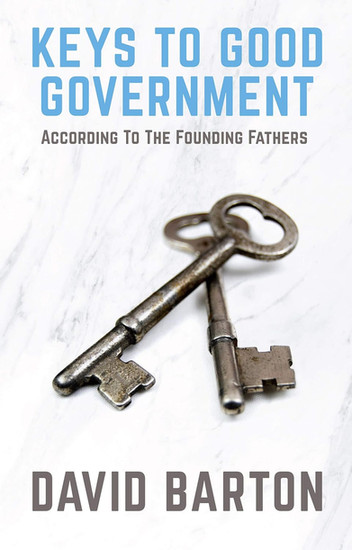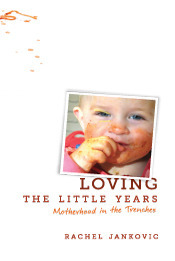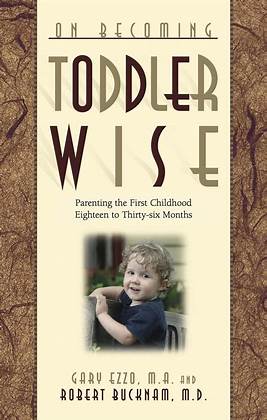Parent or President? How a Godly view of government can transform your home
- Hannah Sherrill
- Mar 25
- 13 min read
Updated: Mar 28
I’ve fiddled back and forth with this article for months. I have attempted but abandoned starting several times. Every time I started writing about our daily rhythms and routines, it just felt like I was typing out a list of rules of dos and don’ts. As our families and homes will never be perfect rubber stamps of each other, I felt like I was failing to get to the heart of anything that would lend itself practically to a group of people whose values are the same, but the fleshing out of those values in the home will inevitably look different. As I thought about schedules, rhythms, and routines, I kept coming back to the question, “Why does this even matter? Why is this even important?”
The answer on its face is seemingly obvious: Rhythm, routine, and a plan for your day will inevitably reap some peace in your life. It will likely buy you time. It will most definitely help you spend more time on what matters most. All those are good things. All those are Godly things. However, I believe the root goes deeper than that. Through various readings the last couple months, it dawned on me that order, structure, and rhythm in the home, are not simply good practices, they are necessities to Godly governance.
You might be wondering how on earth “government” has anything to do with the home? However, this question reveals how little we think in terms of God’s natural order for governance in our world. God has put in place certain governments to rule our world: self-governance, family governance, church governance, and state governance. We are apt to think of these backwards. We often think of state governments at the top with man, families, and religious societies underneath. Everyone is individually free to choose how they ought to operate and run their lives as long as it is not outside the breadth of allowance provided by the state. In essence, if you aren’t breaking the law, do as you will!
However, God’s governance is much the opposite. As Gary DeMar outlines in his book, "Restoring the Foundations of Civilization", God starts with self-governance and moves to family governance, then church governance, until finally you reach governance by the state. If you give it thought for a moment, this is profound. We wouldn’t have much need of a state government if all the members of our society had a strong grasp on themselves. Would there be many children in foster care, instances of abuse, crimes against others, broken families, etc. if man had a strong self-governance? If our lives were ripe with the fruit of the spirit (Galatians 5:22-26), we would have little need of any involvement from the state. DeMar says,
“The government at the top reflects the government at that bottom, that is self-government. The more self-government becomes a problem, the greater the power and authority of civil government.”
In essence, in God’s government, the state is the last line of defense. It is the protection of society against and the restraint of people who refuse to submit to self-governance, family governance, or church governance. It would be God’s design that we have little restraint from our state governments or church governments having first restrained ourselves at the point of self-governance. However, the minute self-governance becomes a problem, the rest of the governances begin to fail. We lose our families to the poor self-governance of the individual mothers and fathers. We lose our churches at the point families can no longer operate in Godly fashion. We lose our state government at the point the church governance can no longer influence the culture and state in a Godly direction. It’s all dominos. None of it lives in isolation, and the collapse all starts in the order God set governance to begin, with the self.
As I have watched my children replicate areas of my behavior, I am struck by the truth that my children’s behavior, to a degree, is a direct reflection of my ability, good or bad, to conduct myself in Godly self-governance. As we face instance upon instance of abuse at governmental levels, we directly see the impacts of men who have no ability to self-govern being controlled only by their own whims and passions. When we face difficult situations with people in our neighborhoods and unjust situations in our work, it begs the question, “What if these people had been raised in homes where the parents governed well? What if they had been encouraged in the direction of Godly self-governance?” Undeniably, we would find ourselves in a different world. Elias Boudinot, president of the Continental Congress from 1782-1783 said,
“Good government generally begins in the family, and if the moral character of a people once degenerate, their political character must soon follow.”
As DeMar puts it,
“We will get the civil government we deserve.”
When we start to look around at the current state of affairs, we begin to realize our governments are corrupt, not because of one or two evil men but because society as a whole is far from God. We have failed to self-govern at every level and therefore at the highest level, we are far from God because the people at the lowest levels are far from God and are lacking any biblical knowledge to govern themselves for the good of their own self, their families, their neighbors, and the world at large. We have forsaken the good fruit of self-governance according to God’s standards for whatever “feels” right or good. The wounds of our society are self-inflicted by the ever-changing and unreliable whims of our hearts and minds.
The implications therefore for our role as parents is enormous. When we view our role as parents from the perspective of raising future self-governors, the consequence of our actions in forming and shaping those lives should impact us profoundly. Think of the people who govern your life: bosses, pastors, statesmen, business owners, etc. What if all those people in your life were ruled by the fruits of the Spirit and had a strong grip on self-governance? In the future, our children will be those people. It is not a question of “What if they will govern?” but “Who will they govern?”. In God’s order for government, every home matters. The job of every parent matters because in God’s government every individual matters. To have a world governed in a Godly fashion, we must raise individuals who have submitted the freedom of their wills to God’s way. They must submit themselves to Godly self-governance. The question should be; Are our homes operating in such a way which reaps the Godly fruits of self-governance in not only our personal lives but in our homes and the lives of our children? Is the rhythm of our home such that it encourages and points our children towards submission of their wills to God’s standard? Are our homes places where the fruit of the spirit can flourish? In essence, are we governing well?
It is a stinging question. When we view our homes through the light of governance, it brings the necessary weight to our actions and behavior. Our easily given excuses for strife, disorder, chaos, slothfulness, fits of anger, envy, and lack of self-control pale pitifully in light of the criticalness of the task God has given us. In our society, we are apt to balk at the idea of being ruled by kindness and self-control or tempering our passions and being long suffering with people or situations because, “that’s just not my strength.” We have all been privy to many conversations where people make light of tasks God has called them to and shirk responsibility simply because they, “aren’t good at that.” However, our areas of weakness are not areas we have the freedom to deny responsibility, they are areas where we lack godly self-governance, which God wishes to transform. As it says in Galatians 5:24 at the end of the list of the fruits of the spirit,
“And those who belong to Christ Jesus have crucified the flesh with its passions and desires. If we live by the spirit, let us keep in step with the spirit.”
Areas where we lack the fruit of the Spirit, are areas where we lack self-governance. As Christians, we are called to put those things to death, not deny responsibility of producing them all together. Those whose homes where the fruits of the Spirit can flourishes are homes managed by parents who have taken responsibility to self-govern well.
Imagine any other sphere of life where you have been set in charge of a task or group of people, and you shirk responsibility or laugh at your short comings or brush off areas falling apart because it simply “isn’t your gifting.” Most people would find this lack of care towards responsibilities appalling. We would internally deem this person an exceptionally terrible manager and thank our lucky stars that we didn’t find ourselves the sorry subjects of their poor managerial efforts. Why then do we accept substandard efforts towards our own homes and our own children? Should we not apply an equal if not greater level of diligence, energy, and management to our own homes? Of course there is no perfect home. There is no perfect person. We are all people under the grace of God, reliant daily upon Him for our every need. All our abilities and strength to accomplish tasks and work at the jobs He has put before us comes from Him. This writing is not a call to perfection, but it is a call for us to take stock of how we are managing our homes, just as we would any job we perform at, and consider areas where we can enrich, better utilize resources, streamline processes, reduce chaos, promote unity, endeavor to create more peace, be more faithful, produce more goodness, etc. It is more than a worthy task and one we can most definitely improve upon.
Think for a moment about the idea of governing your home and raising your children to be good self-governors; there are so many values to teach them. There are practicalities as simple as self-care, brushing teeth, changing clothes, washing their hands, doing their hair etc. There is the spiritual aspect of their hearts and minds and the endless training that goes into shaping their perspectives on how to view people, the world, God, their friends, the family, and themselves. There are the elements of work ethic and teamwork, being a meaningful member that participates in the daily chores around the house. There are educational responsibilities that need to be taught. There is the area of caring for the things God has given us by living in cleanliness and order. There is the need for exploration and free play, space for them to get dirty, test boundaries, live creatively, and have ample room for imagination and discovery. In short, there are a lot of needs. A lot of demands. How do we ensure that the most important things don’t become overrun by piles of laundry, unwashed dishes, and cooking meals? How do we bring our kids along with us through the governance of our homes in a way that leads them gently but surely through the many different facets of growing up?
This leads me to a more practical point. Rhythms and organization. A strong rhythm for how you run your day is perhaps the first and most beneficial starting point for anyone trying to manage well and govern their home in a way that produces the fruit of the Spirit. The idea is relatively simple but requires some self-control and consistency to reap the benefits of the labor (oh, hey there, self-governance!). Simply put, every day has a planned-out rhythm that you follow where you have thought through and allotted space for everything you need to, want to, and must accomplish during the week. For instance, my home follows the same rhythm every day. During this daily rhythm, I have dedicated spaces for my kids to have Bible time, school time, independent play, time outside, structured table times, book time, etc. I have also allotted times for all my musts such as getting dressed, working out, doing dishes, throwing in loads of laundry, and making meals. I wake up every day and know exactly what needs to be accomplished that day. It is not to say that every day goes perfectly smoothly or there aren’t periods where I buck the routine a little bit, but strong rhythms and a plan keeps me from twiddling my thumbs, allows me to accomplish more with less time, and ultimately spend time on the things that are most important -- my kids! Good rhythms at home, a.k.a a game plan or a schedule, whatever you want to call it, is simply a point of good governance and management. It’s like the tilling for a productive garden. A good rhythm loosens the soil of your home, laying the groundwork to produce good fruit. Peace grows more easily in a home that is ordered, prepared, and not scrambling at the last minute to do everything. Anxiety wanes when your mental load is lessened, and your kids can enjoy the predictability of present expectations knowing from the start how their day is going to flow. Responses to your children that are filled with kindness, love, and joy become more easily obtained when you aren’t pressured by the dozens of things swimming through your mind that need to get done. Goodness grows in abundance as an ordered life has made room to produce many good tasks. Faithfulness and patience take root, as you set yourself to put your hands with measure and consistency to the tasks in front of you. In essence, a rhythm for your week is like putting your hands to the first work of governing your home, it prepares the soil and readies you to grow a garden filled with the good fruits of Godly governance.
While I can’t go into depth about the development of a rhythm in this blog post, I did want to leave you with some very practical tips on accomplishing the task. God commands us to love Him with all of our hearts, minds, soul, and strength. You could also take a few tips from Cain and Abelle on what to do or not to do. Lest we forget God said to Cain,
“Why are you angry, and why has your face fallen? If you do well, will you not be accepted?”
The point is that God desires our very best. He wants us to throw all we’ve got into the ring, trusting in faith that He will be faithful as we submit all our lives wholly to Him. He wasn’t big on Cain’s halfhearted offering, and I have a feeling he isn’t big on halfhearted efforts from us either. In his book “Ploductivity” Doug Wilson provides three trips for cultivating and mastering any task. First, he instructs to take responsibility for the results. We must stop seeing the results of our labors as mere luck and recognize that the outcomes are in direct correspondence to the effort we put in and responsibility we have taken. We are apt to admire people that perform better than us in a task as seemingly more gifted than us rather than considering that they perhaps have taken more responsibility for the task than we have and therefore they have yielded better results. As Doug says,
“You tell the truth, and you do not resort to those evasive half-truths called excuses.”
The second recommendation he makes is to imitate. He notes that “Practicing something wrong is only going to help you learn how to do it wrong.” We need good models and as Doug points out, models to build off. None of us can go it alone. We all need examples of people who have gone before us or who are a few steps ahead of us in the game. His third key is repetition. Start something good and keep going at it. Again, and again, and again. Repetition brings ease, fluidity, and mastery. With practice, the good things we seek to accomplish which require great effort, begin to happen with ease and less thought, and we find our muscles for governing our homes growing, our shoulders stronger for the task, and our harvests producing more fruit!
To summarize succinctly, God has set in place a certain order for our world regarding governments, and it starts with the self and ripples over into the governance of the family. We cannot govern our families well if we do not govern ourselves well. Any areas of lack in our homes are opportunities to grow and strengthen self-governance in accordance with the production of the fruits of the Spirit. We should thus take seriously the work God has given us as it is a work that produces future governors and leaders of our world. We should view our homes as the first and most important job we wake up to every morning. We should make every effort to manage our homes, so they are most apt to produce love, joy, peace, patience, kindness, goodness, faithfulness, gentleness, and self-control. The seemingly mundane, drudgery- inducing word “schedule” can be the starting point of beginning this mighty task God has given us! May we take responsibility over it, find good examples to emulate, and be faithful in the repetition of shouldering all that God has given us to do. The Godly governance of our world begins with our ability to grab a hold of ourselves and bring governance to our homes! By God’s grace and His help, may we governor with excellence!
Below are some resources for diving deeper on the subject and getting started:
Theological:
Here's the list of books I've been reading. If you have an interest in diving deeper into this area of thought, these could be good starting points. I didn't find myself agreeing with everything all the authors laid out, but these authors will certainly get your thoughts moving on the topic.
Ploductivity by Doug Wilson.
Restoring the Foundations of Civilization by Gary DeMar
God and Government Volume 1 by Gary DeMar
The Household and the War for the Cosmos by C.R. Wiley
Keys to Good Government by David Barton
Practical Books to Inspire on Motherhood:
Some very practical books that address the challenges of motherhood but will inspire you to see beyond the difficulties and monotony and begin to see the greater eternal work we are participating in daily.
Loving the Little Years by Rachel Jankovic
A Mother's Heart by Jean Fleming
Awaking Wonder by Sally Clarkson
Resources for Beginning to Build Schedules and Rhythms at Home: These resources have greatly shaped the way I run my home. Again, you don't have to agree with everything to glean some nuggets. Take the good and leave the bad. However, these handful of resources will 100% provide inspiration and ideas of how you can build a home full of good rhythms.
On Becoming Toddler Wise by Gary Ezzo - a good place to start for the difficult toddler years. How do you order your days to benefit them best developmentally? While a point of controversy in some circles, this book has some great ideas on structuring a toddler's day even if you don't agree with everything.
The Montessori Home by Ashley Yeh and The Montessori Toddler by Simone Davies - Did you know that the Montessori method was developed to model a home environment for children from difficult family situations? Therefore, many of its methods fit beautifully into the home, and you will find some wonderful ideas on how to structure and organize your home in a way that benefits your children. I highly recommend grabbing a handful of books from your local library on the Montessori method and reading up on some of its methods. Above is simply a couple of the books I read to gain some knowledge.
Sink Reflections by Marla Cilley (Fly Lady) - While I have not read her book, I do implement her rhythms for cleaning my home, doing laundry, and just getting stuff done. It has been SO helpful. You can google her name or google "Fly Lady" and find a variety of people explaining her method on YouTube. It is a little bit of work to dig in and implement the methods, but the outcome has 100% been one of the best things I've done.



























Comments